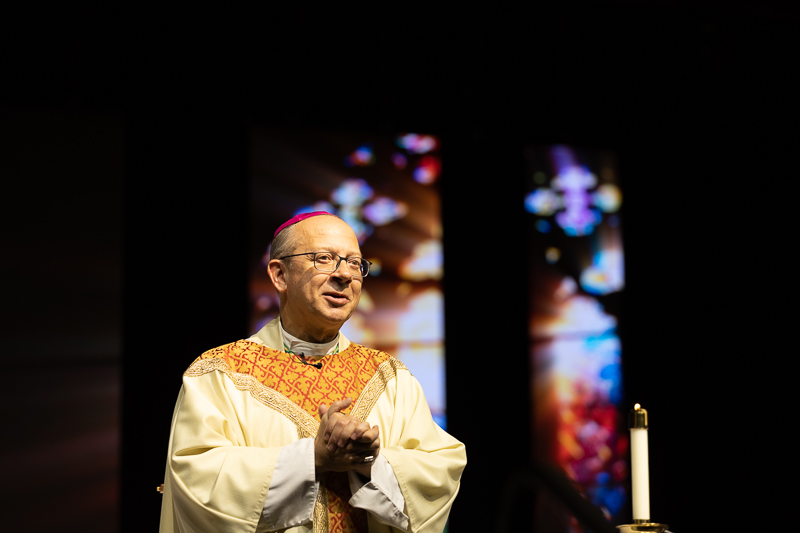Over the history of the Diocese of Richmond, a good number of evangelization, catechetical and fundraising programs have been initiated. Many people might agree that in evaluating the effectiveness of these initiatives we sometimes have a preoccupation with numbers. With each activity or event, the commonly asked question is: “How many took part?” or “How much did you raise?”
Generally, our questions about numbers are another way of asking, “Was it successful?” or “Was it worthwhile?” For example, advertisers who paid $7 million for a 30-second TV commercial during this year’s Super Bowl wanted to justify spending that amount of money and be assured that an estimated 114 million people would watch the game and see their ad.
Some numbers are easy to count, e.g., ticket sales, products in stock, amount of snowfall, etc. Others are subject to the “eye” test — someone looking at a crowd and determining its size. This is often where numbers differ.
For years, the National Park Service would provide a crowd estimate for the annual March for Life in Washington. Organizers of the march questioned that figure and would provide
what they thought was an accurate number. Eventually, the NPS stopped doing crowd estimates of rallies on the Washington Mall.
Numbers can be an indicator of vibrancy and success, of widespread popular support, i.e., is our concern or issue gaining traction? While numbers are important, in the larger public narrative they do not always express what is occurring. Three events from this month are examples.
Defending Life Day on Feb. 1 appeared to me to draw more than a thousand participants to the Capitol. It was a multi-faceted opportunity — to pray, to be inspired, to let our elected representatives know of our commitment to protecting all human life, especially that of the unborn, and to express our solidarity as we marched on the Capitol grounds.
The story of that day was not necessarily about the number gathering, but about the effect it might have on the individuals who participated — in how well they will take what they heard that day and continue their pro-life advocacy. We cannot put a number on that, nor can we underestimate the impact it can make.
On the weekend of Feb. 10-12, more than 700 teens and 425 young adults participated in our Diocesan Youth Conference and College Summit. These annual events energize participants in their faith. The young people I encountered at these gatherings were enthusiastic. They experienced being part of something bigger than themselves, sharing with their peers something inspiring, something that can be life changing.
I could see and hear the energy and excitement generated at the conference and summit. What is difficult to quantify is the effect these events have on participants. I am confident that many who participated experienced an impact resulting from being connected to a faith community, praying, reflecting on God’s plan for them and receiving the sacraments.
This weekend I will celebrate the Rite of Election with more than 300 catechumens in our three vicariates. This annual rite on the First Sunday of Lent is an opportunity for those who are coming into the Church to experience being part of the larger Church community, to witness the support they are receiving from those who are journeying with them.
They realize that they are not making this commitment in isolation but are buoyed by all the faithful in their journey toward full communion in the Church.
Whatever we are trying to accomplish, I am grateful when large numbers take part. With Defending Life Day, the DYC and College Summit, and the Rite of Election, we want to show how we’re being successful. However, we cannot be limited by what the numbers tell us.
Should we be tempted to define our successes solely by numbers, we should heed the words of the psalmist: “No king is saved by the size of his army; no warrior escapes by his great strength. A horse is a vain hope for deliverance; despite all its great strength it cannot save. But the eyes of the Lord are on those who fear him, on those whose hope is in his unfailing love, to deliver them from death and keep them alive in famine” (Ps 33:16-19).
What is important and what should define the success of our endeavors is that we have placed all our work, efforts, ministries and decisions in God’s hands, trusting in his grace for their fruitfulness.
Whether numbers are small or great, they do not matter as much as being steeped in the authenticity of faith, in devotion and persistence in doing good. In the end, the success of our endeavors is determined by the depth of our trust in God.

